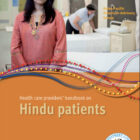Diversity Issues
Montgomery County produces nation’s first Hindu Handbook
|
“This initiative has been in the works for a while because we’ve noticed as a county with such a diverse population and 16 % of the population identify as Asian we knew that the county needs to understand different traditions,” said Chowdhury.
Montgomery County, Maryland, has produced the nation’s first Hindu Handbook for healthcare providers to help learn more about Hindu and Jain patients. The handbook was created with the help of Ishani Chowdhury, who serves as the co-chair for the county’s Asian advisory committee.
The handbook was originally created by Queensland Health and has been adapted to use in the Montgomery County area. Within the handbook readers can find three sections: guidelines for health services, Hindu beliefs and additional resources.
Queensland Health Handbook edited for the state of Maryland
“In racial bias in medicine you’ll find that currently they’re saying that half the medical professionals believe that those who are Black have a higher pain threshold, ” said Shen, who serves as the Asian liaison for Montgomery County. To help with disparities in medicine the handbook serves a way to help those in the medical field understand the needs of those who are Hindu and Jain.
“For example if you are in the hospital and you’re vegetarian like my mother was when she was in the hospital in New York their answer was steamed broccoli and carrots or jello,” said Chowdhury.
The handbook lists the many options that are available as a food source as well as limitations. Jell-O is one of the foods that providers should avoid because of the collagen found in bones of a cow or pig.
The handbook lists the 14 different types of languages that are most commonly used by Hindus in Maryland and how to contact an interpreter if necessary.
Chowdhury and Shen have reached out to numerous organizations to spread the word about the handbook.

